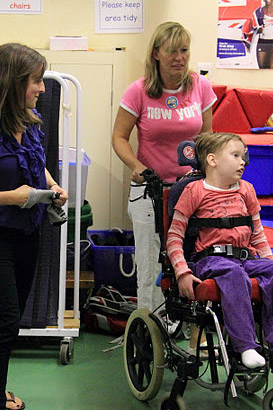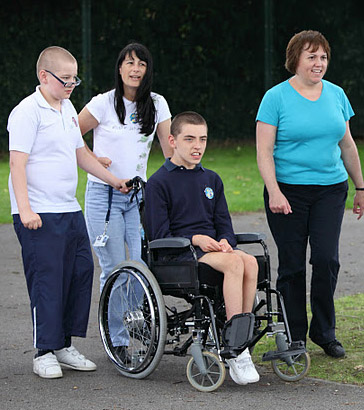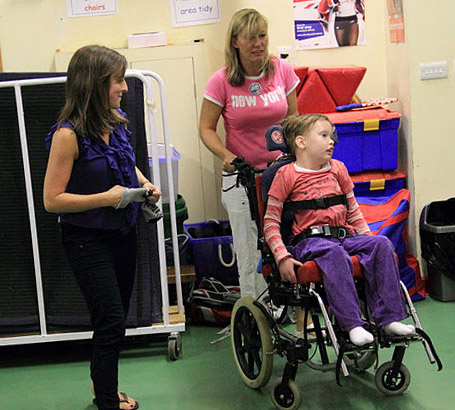
We believe that it should not be regarded as an exotic
idea for disabled children and those close to them to aspire to a quality of life comparable to that enjoyed by others who
do not live with a disability. In our view it is unacceptable at the beginning of the 21st century for the lives and experiences
of disabled children and their families to be bereft of those features that many of us take for granted; features which make
for an ordinary and reasonable quality of life. Families are our greatest resource and if they are not seen as a resource
they become problems.
Read and Clements, 2006

The importance of the family in nurturing children came to the fore in the 1980s and has become increasingly emphasised through policy and in service approaches. The publication of Supporting Families (Home Office, 1998) generated the Family and Parenting Institute, founded upon the premise that, 'Families are at the heart of our society and the basis of our future as a country.' The Institute's three core tenets are:
- Children must come first.
- Children need stability.
- Families raise children.

Early Support goes beyond the concept of partnership
with parents. The starting point is respect for the daily reality of family life for parents who are raising young children
in a situation which presents them with repeated, unusual and unpredictable challenges and which is often highly emotionally
charged. Improved service provision means joint decision-making, the right information at the right time and enough continuity
of support to enable parents to take decisions and initiate positive action to help their child.
Department for Education and Skills, 2004

1998 Human Rights Act, Article 8: Public bodies must respect a person's rights to family and private life. 'The right to respect for family life… imposes a duty to respect all forms of family life, not just a traditional 'nuclear' family. However, the right to private life is particularly important for disabled children. Private life includes a person's ability to function socially and a person's 'physical and psychological integrity'. In effect, this means that disabled children have a qualified right under Article 8 (qualified in the ways set out below [see full article]) to services and support to enable their personalities to develop and for them to function socially.'
Broach, 2010

Over the course of Level D, plan, prepare for, and then deliver a Family Focus day for your staff. Activities associated with the different sections in this Level will contribute to this day.
These include:
- Carrying out an audit of your school's work with families
- Working with your Parent Partnership Service
- Devising a survey for school staff about working with families.

Broach, S. (2010) 'Cemented to the floor by law'.
Early Support (2004) Professional Guidance, Annesley: Department for Education and Skills.
Home Office (1998) Supporting Families: A consultation document, London: Home Office and Voluntary and Community Unit.
Read, J. and Clements, L.J. (2006) Disabled Children and the Law: Research and good practice, London: Jessica Kingsley